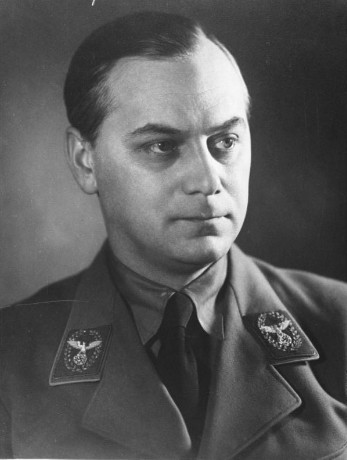Rosenberg, Alfred
Rosenberg, Alfred, b 12 January 1893 in Revel (now Tallinn), Estonia, d 16 October 1946 in Nuremberg. Nazi ideologist of Baltic German origin. He grew up in tsarist-ruled Estonia and studied architecture at Moscow University. He fled from Russia during the Revolution of 1917, joined the nascent Nazi party in Munich in 1919, became editor of its organ, Völkischer Beobachter, in 1923, and briefly led the party in 1923–4 after the failed Munich Putsch. Rosenberg was the leading Nazi ideologue and cultural propagandist. He expanded on Adolf Hitler’s Lebensraum ideas in his Der Zukunftsweg einer deutschen Aussenpolitik (1927), in which he urged the conquest of Poland and the USSR, and he expounded on Nazi racist, anti-Christian, and German-superiority theories in Der Mythus des XX Jahrhunderts (1934). As chief of the Nazi Department of Foreign Affairs from 1933, he had discussions with representatives of the Ukrainian Scientific Institute in Berlin and the Organization of Ukrainian Nationalists leadership there. After the 1941 invasion of the USSR he was the largely powerless Reichsminister of the occupied eastern territories, including the Reichskommissariat Ukraine. His attempts to persuade Heinrich Himmler and Erich Koch, the Reichskommissar of Ukraine, to scale down their brutal extermination policies were unsuccessful. Although Hitler accepted Rosenberg's proposal for the partitioning of the USSR, he rejected his idea of gaining the support of non-Russians by allowing them quasi-autonomy and separate armed forces. Rosenberg was tried as a war criminal at the Nuremberg trials and hanged.
[This article originally appeared in the Encyclopedia of Ukraine, vol. 4 (1993).]

